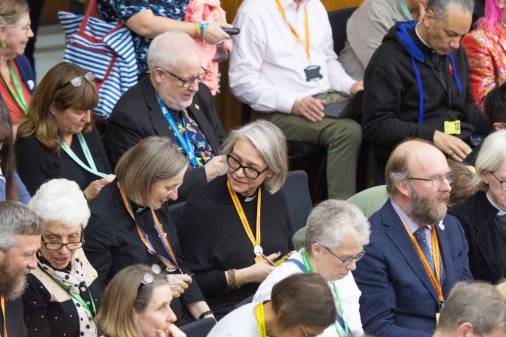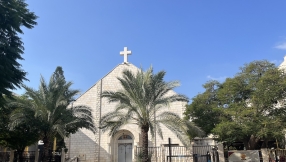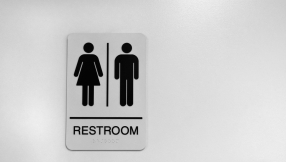
Today the General Synod of the Church of England voted for a motion which encourages the House of Bishops to commend Prayers of Love and Faith and introduce liturgy for standalone services of blessing for same-sex couples.
It will now be down to the House of Bishops to implement the will of Synod, probably after their meeting in the middle of December.
The vote was very close, and reflected the deep concern felt by a very large minority of Synod. In the House of Bishops, 23 voted for, 10 against and 4 abstained. Among clergy, there were 100 votes for and 93 against, with one abstention. Within the laity, 104 voted in favour and 100 against, with no abstentions.
Mrs Alianore Smith, who was attending her first Synod, said she would vote against the motion because, "It did not seem wise or prudent to vote on something as important as this when there is incomplete pastoral guidance and a lack of transparency around legal advice."
This was also the view of Rev Kate Wharton, one of two leaders of the House of Clergy, who described passing the motion as "pastorally irresponsible, practically irresponsible, theologically irresponsible and collegially irresponsible".
In February, those voting in favour of the motion were warned by Archbishop Shamy Shehata, Archbishop of Alexandria, of the global consequences of their action. This time, members of Synod spoke of the consequences for the Church of England.
Echoing words which were first used of the Anglican Communion, Rev Vaughan Roberts, the rector of St Ebbe's, an evangelical church in Oxford, told Synod, "If this motion is passed there will be a tearing of the fabric of the Church of England at the deepest level – in every parish, deanery and diocese."
Adrian Clarke, a vicar of a vibrant multi-ethnic congregation in London, spoke on behalf of his congregation: "A good number of my congregation have put their family's lives on the line in Pakistan, Afghanistan, China and many more would be willing to do so to defend the Scriptures, the very Word of God ... and consequently they are saying to me that if these prayers are passed, either we leave the CofE or they will leave this church."
Last month the House of Bishops agreed to commend the Prayers of Love and Faith for use in existing church services. Synod heard that that is likely to take place by mid-December.
Several speakers recognised that the debate about introducing same-sex blessing was a proxy for far deeper disagreements about the authority of God's word, ecclesiology and salvation.
Benjamin John, the son of evangelist Canon J John, observed, "We have lost confidence in the Bible and what it teaches. We doubted if this is what the Lord really teaches: 'Did God really say'?"
He went on to quote the Apostle Paul's first letter to the Thessalonian church, "For God has not called us for impurity, but in holiness. Therefore whoever disregards this, disregards not man but God."
But 23 bishops, 100 members of the clergy and 104 members of the laity ignored these warnings and voted in favour of the motion. Some even described the warnings as "threats" and Rev Simon Butler accused the Church of England Church of Council of "advocating schism".
The Archbishop of Canterbury, Justin Welby, and the Archbishop of York, Stephen Cottrell, said: "We have heard loud and clear, through an extensive debate over two days, the depth of feeling across the Church on these hugely important questions.
"In particular, we have heard deep and heartfelt concern about the way the bishops have sought to implement Synod's earlier decision on the Prayers of Love and Faith.
"So while this motion was passed, narrowly, we do not underestimate the depth of feeling and will reflect on all that we have heard as we seek to move forward together."













